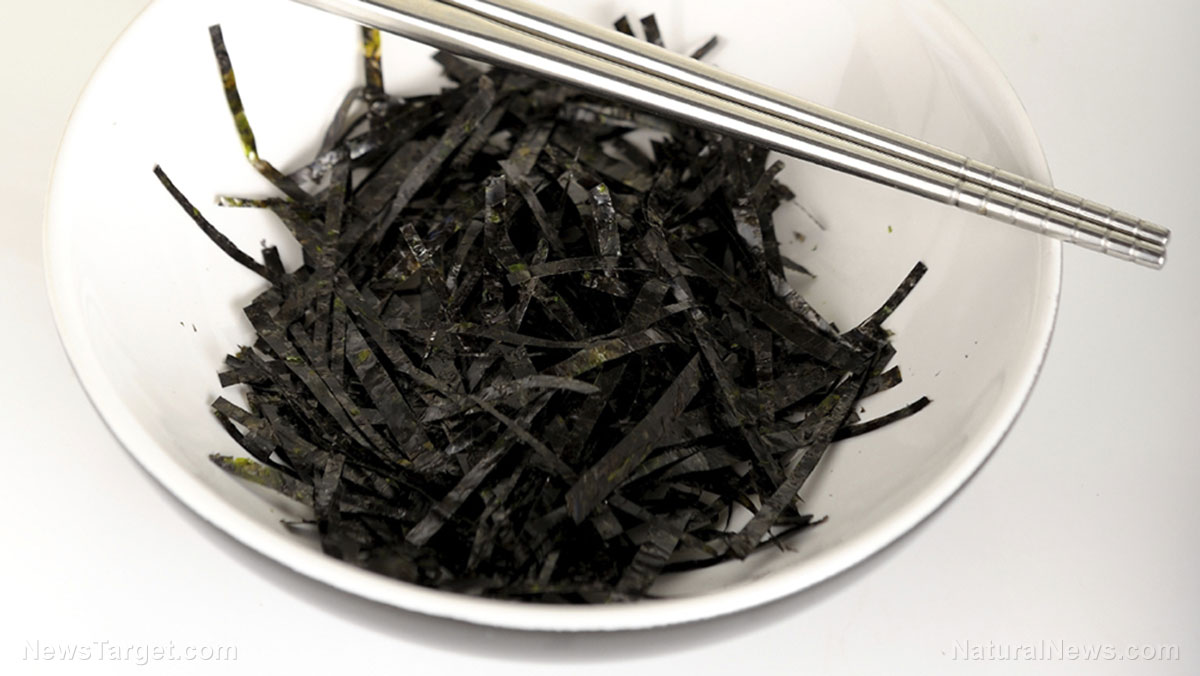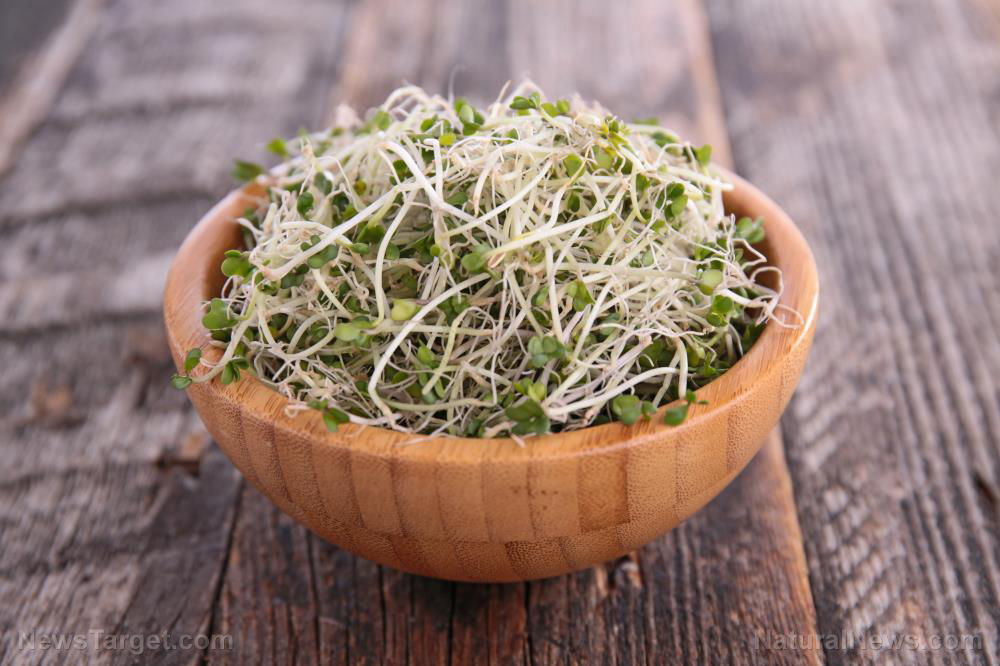Foods to stock up on during the coronavirus outbreak
04/07/2020 / By Divina Ramirez

Due to the coronavirus outbreak, supermarkets and grocery stores nationwide have seen an influx of shoppers like never before. Experts have warned the public that the outbreak could last well beyond April, so it’s not surprising that people are stocking up on foods, toiletries and emergency supplies.
Being prepared is vital during times of crisis. And as the number of coronavirus cases continue to rise, stocking up on essentials, especially food, has become even more crucial. Having these necessities in your stockpile allows you and your family to stay in the safety of your own home, which also reduces your risk of contracting the coronavirus.
But besides having enough food to eat, nutrition should also be your top priority. Canned foods and other heavily processed foods may fill your belly, but they won’t provide all the nutrients you need to stay healthy. So if you’re planning to replenish your food supply, here’s a list of nutritious foods to stock up on amid the coronavirus outbreak.
Meat, poultry and fish
Protein is an essential macronutrient that the body needs to build and repair skin cells, muscles and bones. Protein is also required for the production of important enzymes and hormones that regulate various body functions, such as blood circulation and detoxification. In addition, protein aids in energy metabolism. Healthy sources of protein include lean meats and fatty fish.
To stock up on protein food sources, buy a large amount of meat, poultry and fish. You can portion the meats into airtight, freezer-safe containers and add labels that contain the date of purchase and the type of meat. Sealed, uncooked meats can last up to three months when frozen, according to the U.S. Department of Agriculture.
Fresh fruits and vegetables
Fresh fruits and vegetables contain important nutrients that supercharge the body. Antioxidants also improve immune function, boost energy production and prevent infections and diseases. Snacking on raw fruits and adding vegetables to dishes ensures that you and your family do not suffer from nutrient deficiencies which can negatively affect overall health and well-being.
That being said, fruits and vegetables can easily go bad. So instead of stocking up on leafy greens that wilt within a day or two, opt for hardy vegetables that stay fresh for long periods. Examples of these are broccoli, cabbage, leeks, Brussel sprouts and asparagus. You can also pickle fruits to extend their shelf-life.
Herbs and spices
Eating the same foods for days can eventually get boring, so stock up on aromatic herbs and spices and experiment with your go-to recipes. Like most plant-based foods, herbs and spices contain antioxidants and active compounds that can strengthen the immune system. You can also use herbs as natural remedies to treat minor ailments like chills, sore throat and stomach aches. Common kitchen herbs and spices that have potent medicinal properties include garlic, onion, ginger, sage, rosemary, basil, oregano, chili pepper and turmeric. You can buy fresh ones in bulk or opt for the powdered versions that do not easily spoil.
Whole grains
Besides vitamins and minerals, the body also requires dietary fiber to promote digestion and regulate bowel movement. Whole grains contain high levels of dietary fiber that support cardiovascular health by inhibiting the absorption of excess glucose and cholesterol. Plus, whole grains rarely go bad, especially if kept inside airtight containers and stored properly. Common whole grains to stock up on include oats, brown rice, rye kernels, barley, buckwheat and quinoa. (Related: Do you get enough whole grains? Eat more to lose weight, feel fuller longer, reduce inflammation.)
Beans
Beans are an excellent alternative to meat sources of protein. Beans are also known to reduce cholesterol, regulate blood pressure and aid digestion, thanks to the high amounts of nutrients they contain. Common types of beans include chickpeas, lentils, kidney beans and black beans. To avoid spoilage, create homemade canned beans using a pressure canner or the water bath method. Avoid processed beans since aluminum cans contain traces of bisphenol A (BPA), a toxic chemical that can cause heart disease, fertility problems and other serious conditions. Dried beans are also a popular option with a long shelf life.
Nuts
Nuts contain high amounts of antioxidants and nutrients that aid in various body functions, such as metabolism, digestion and blood circulation. As “clean” sources of calories, nuts can keep you energized throughout the day. Plus, nuts contain omega-3 fatty acids that support cardiovascular health. Nuts are also excellent sources of calcium, iron, potassium and other micronutrients.
Nuts are extremely versatile. You can add crushed nuts to salads, pasta and rice. You can also create trail mix by combining nuts, whole grains, dried fruit slices and dark chocolate. If you love to bake, you can even grind nuts to create a nutty homemade flour. Common varieties of nuts that also make healthy snacks include almonds, pistachios, walnuts, cashews, peanuts, pine nuts, hazelnuts and pecans.
Eggs
Eggs are an excellent source of protein, especially for people who have problems digesting meat. Also used a lot for baking and cooking, eggs also last longer than fresh meat, fish and poultry, so it’s perfectly alright to buy whole egg cartons at a time. But if your local grocery is out of eggs, you can opt for vegan alternatives like chia seeds or flax seeds. There are also tons of vegan bread recipes that do not use eggs (or cow milk, for that matter).
A stocked pantry eliminates the necessity for frequent trips to your local grocery store or supermarket. Plus, having a good supply of clean, nutrient-dense foods considerably ups your chance of surviving the current pandemic. However, expect crowds, long lines and possibly scarce produce due to high demand. As you go about grocery shopping, remember to practice social distancing, carry alcohol-based sanitizers or wipes and observe proper sneeze and cough etiquette to minimize the risk of infection as much as possible.
Sources include:
Tagged Under: bug in, coronavirus, disaster preparedness, emergency shopping, emergency supply, food supply, grocery shopping, infections, infectious disease, lockdown, nutrition, outbreak, pandemic, preparedness, prepping, shopping, SHTF, stockpiling, supermarket, survival, survivalist
RECENT NEWS & ARTICLES
EmergencyFood.News is a fact-based public education website published by Emergency Food News Features, LLC.
All content copyright © 2018 by Emergency Food News Features, LLC.
Contact Us with Tips or Corrections
All trademarks, registered trademarks and servicemarks mentioned on this site are the property of their respective owners.



















